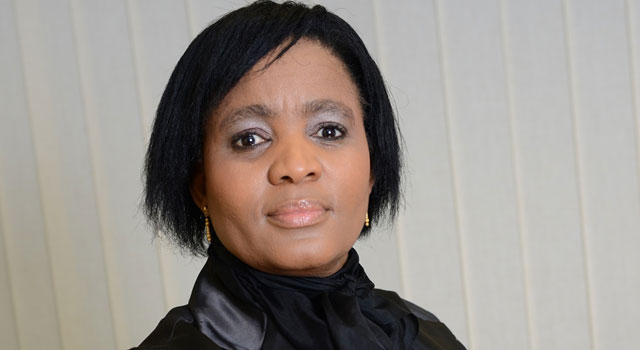
State-owned telecommunications infrastructure provider Broadband Infraco has reported a reduced loss of R91m for the year ended 31 March 2016, a significant improvement from the loss of R245m it reported a year ago.
It has also reported its first positive Ebitda number since its founding in 2007. Ebitda is earnings before interest, tax, depreciation and amortisation.
Ebitda margin was 7%, said chief financial officer Ian van Niekerk. It reported an operating loss of R100m, an improvement from a negative R260m a year earlier.
The improved financial performance comes on the back of strong growth in Broadband Infraco’s top line, with revenue climbing to R452m, up by 24% from the R366m it reported in the 2015 financial year.
At a media conference in Johannesburg on Thursday, Broadband Infraco CEO Puleng Kwele said it required “very hard work” to ensure the business grew its revenue line significantly and became Ebitda positive.
“We will continue to drive revenue and optimise our costs to ensure that our operating loss is converted into a positive amount,” Kwele said.
“The mandate I have from the board is to ensure I preserve the value of this company and that I preserve the jobs that are within this institution,” she added.
The employee costs-to-revenue ratio has fallen to below 29%, she said, and this will continue to improve as Broadband Infraco strives to measure itself better relative to its industry peers.
Kwele declined to comment on speculation that a partial privatisation of Broadband Infraco is on the cards.
Bloomberg reported this week that government is set to decide this week whether to partly privatise the company. The news agency reported that both Vodacom and Dark Fibre Africa have expressed interest in participating in a privatisation process.
Earlier this year, Telkom walked away from doing a deal with Infraco. Telkom offered to pay just R1 for the company, a well-placed source told TechCentral at the time.
“I don’t have a mandate to sell the company,” Kwele said on Thursday. “I’m not sure what the plans of the shareholders are. Those questions are best answered by the shareholders themselves.”
She added, however, that it is “important” to note that Infraco “operates in an environment where the market is consolidating”.
“Surely, at some point, the government has to say: ‘How do we become prudent as to how the monies of the state are distributed and that the state can be able to compete or redefine its play in this sector?’,” she said.
Kwele emphasises that Infraco is still willing to collaborate with any industry player, including Telkom. She confirmed that the company has received letters of interest from a number of suitors.
Meanwhile, Van Niekerk said the company is engaged with its shareholders — government holds a 74% stake (managed by the department of telecoms & postal services), while the Industrial Development Corp holds the remaining 26% — with a view to converting R1,8bn of shareholder loans into equity.
If it is successful in its bid, it will strengthen Infraco’s balance sheet significantly and make it more attractive to other lenders, including banks, Van Niekerk said.
The company ended the 2016 financial year with R141m of cash. — © 2016 NewsCentral Media




